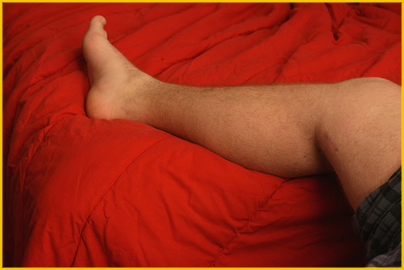
Here’s an interesting phrase: “spontaneous recovery.” It sounds like it should mean something good, but this is counter-intuitive, because in addiction medicine the term doesn’t mean anything good. It means someone who seemed to have gotten better, but returns to the old behaviors that had caused trouble in the first place. At wiseGEEK, Tricia Ellis-Christensen explains:
Medical experts have labeled regression in alcohol and other drug addiction as a form of recovery that is spontaneous. Note, this is by no means positive, and the recovery referred to has nothing to do with recovery from addiction. Instead, the person recovers old habits and behaviors that may make them drink or use again…
However, Ellis-Christensen goes on to give the other, opposite meaning for “spontaneous recovery.” Many doctors have observed unexplainable cures. A patient may make a full recovery when the planned course of treatment has not proceeded nearly far enough to explain it. A person who has received no treatment at all, who “should” have died, might make a full return to health.
There is such a thing as sudden, unexpected healing. To avoid confusion, many prefer to call it natural recovery or spontaneous remission. Granted, this kind of thing might happen in only a very small percentage of cases, but when you’ve got millions of affected food addicts, even a small percentage equals thousands of kids.
For anyone who wants to get really deep into it, Dan Waldorf and Patrick Biernacki have published a long article about natural recovery with many references, in which they conclude:
We recommend future research be undertaken to […] determine the characteristics and resources of persons who recover naturally and compare them with their treated counterparts and the larger populations.
Among recovering addicts of alcohol, nicotine, heroine, cocaine, etc., there are remarkably varied accounts of quitting. Not everyone’s experience of withdrawal is the same. Depending not only on the substance, but also on the person, the same amount of deprivation can have different effects on the mind and body. It is possible to simply drop a behavior, and never take it up again.
Of course, then somebody could come along and say, “Well, if a person could quit, just like that, he or she must have not been truly addicted in the first place. So his or her experience doesn’t count for anything in our studies.”
Do you see the problem here? They’re saying, basically, that if a person can quit, he or she is not an addict. Which means, if someone is an addict, he or she can’t quit. So once you call someone an addict, there is no hope, and it becomes a self-fulfilling prophecy. Nobody wants that. And if the person is not acknowledged as an addict, how can he or she ever get help?
At any rate, it doesn’t seem like a good idea to insist that quitting can only be done with enormous struggle. Along with the withdrawal plans, etc., let’s keep a little space for grace, or at least for individuality. Seems like it might be a good idea to accept that, in a very small but significant number of cases, some kind of enlightenment can occur, that allows a person to shed an addiction like a snake sheds its old skin.
In fact, for a certain type of an overweight kid — the introspective, studious kind — researching that subject might be a good project to embark on. How do those people do it? Of course, another obvious place for research on childhood obesity is Dr. Pretlow’s Weigh2Rock website, especially the section called “Success,” where there are pages and pages of encouraging how-to suggestions from kids and teens.
For a different kind of teenager, another approach might help. Remember, adolescents are extremists. To a certain kind of kid, the idea of going through many steps (cutting out milkshakes, and then cutting out hamburgers, etc.), might not be appealing. At the same time, a far-out idea like a radical raw-food diet could light a fire under this particular teen with a problem. Breakthrough is an inspiring documentary made by the Talifero family about the 100 percent raw organic vegetable diet that had transformed their lives.
There are probably thousands of stories out there that doctors and researchers never hear. A lot of people follow idiosyncratic paths that take them to good places, without ever checking in with a professional. Much as the medical establishment dislikes “anecdotal evidence,” it’s still worth paying attention to. So, if you have a story to share, of natural recovery or spontaneous remission from addiction, we’d love to hear it!
Source: “What Is Spontaneous Recovery?,” wiseGEEK
Source: “Natural Recovery from Heroin Addiction: A Review of the Incidence Literature,” DrugText.org
Source: “Breakthrough,” GoogleVideos
Image by Brymo, used under its Creative Commons license.

 FAQs and Media Requests:
FAQs and Media Requests: 











